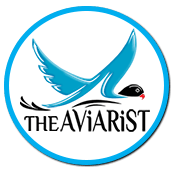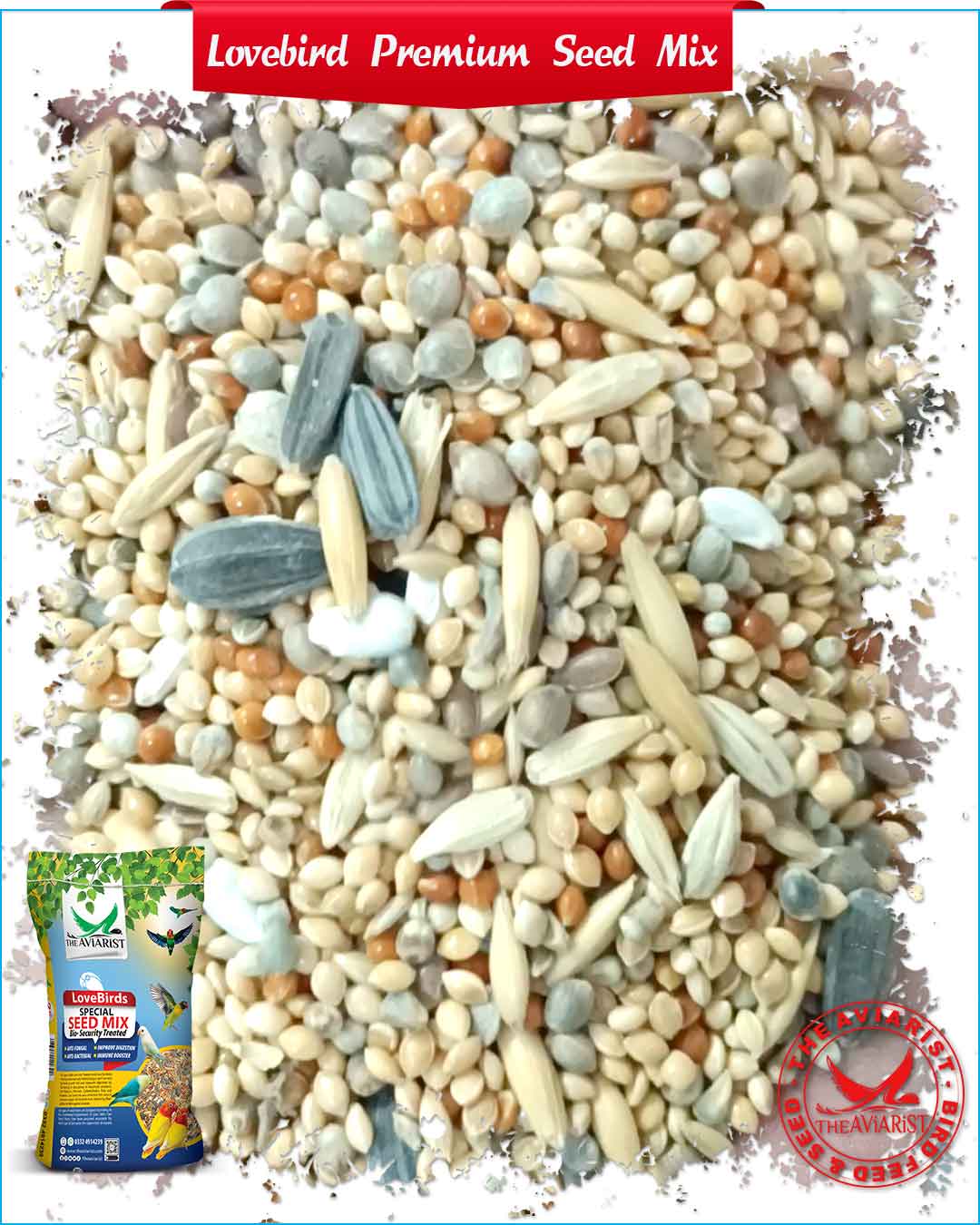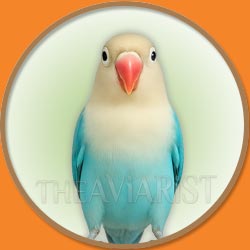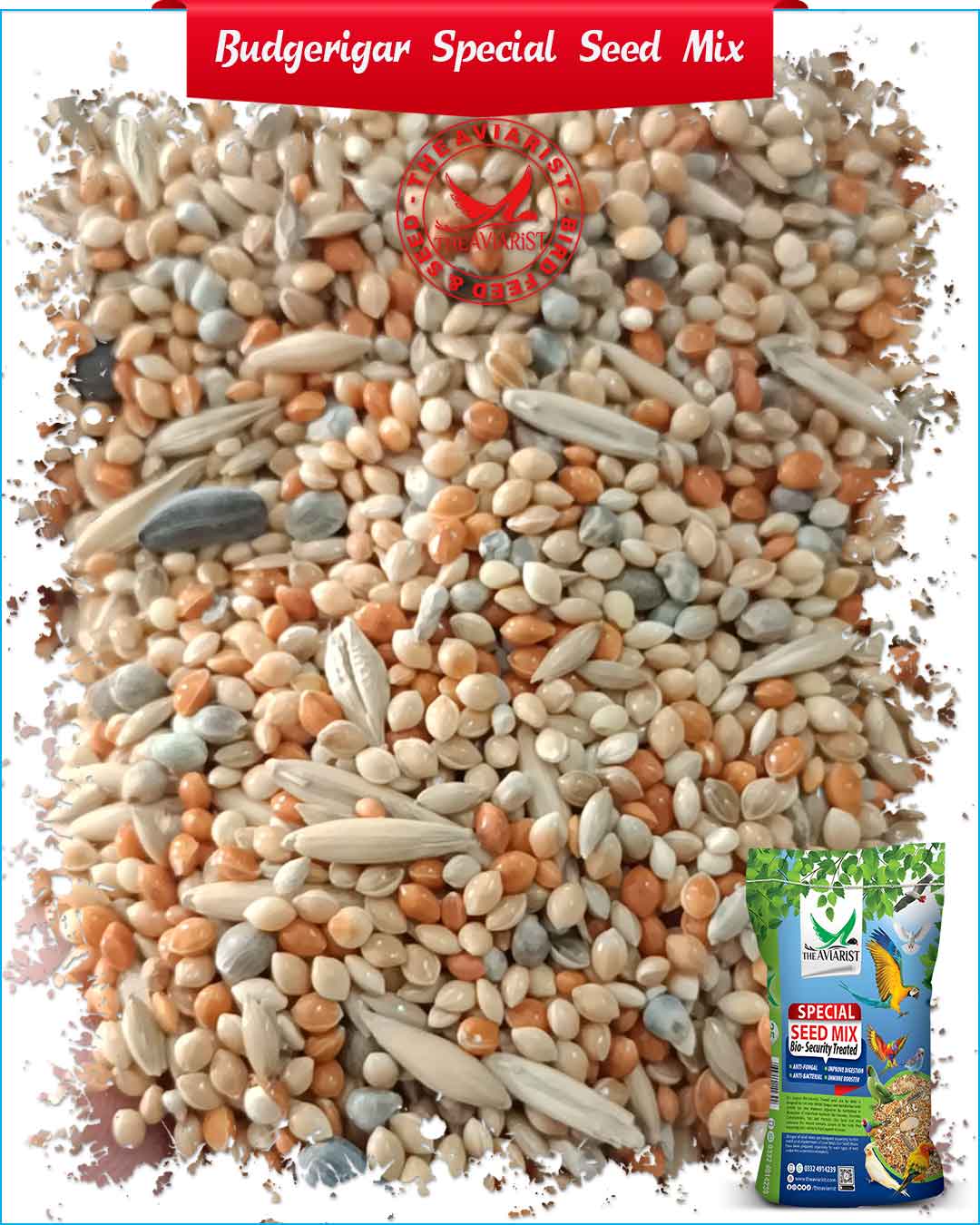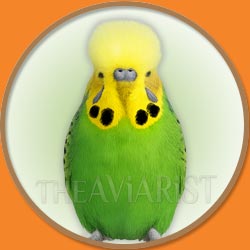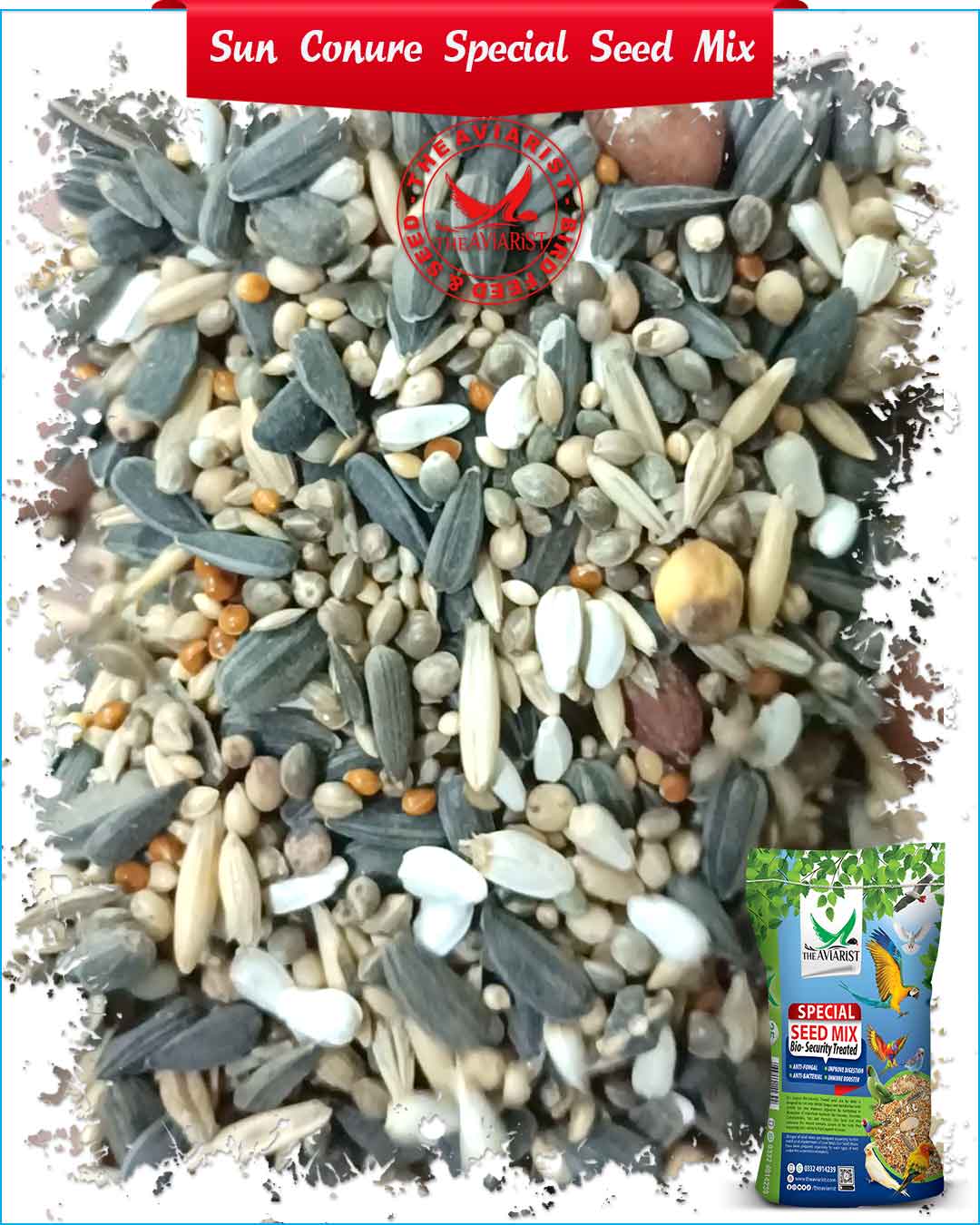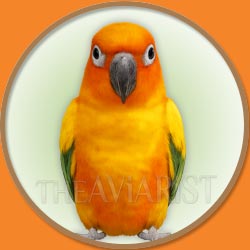Green Cheek Conure

The Green Cheek Conure (Pyrrhura molinae) is a small to medium-sized parrot species native to the forests and woodlands of South America, particularly in Brazil, Bolivia, Argentina, and Paraguay. Known for their playful personalities, affectionate nature, and manageable size, Green Cheek Conures have become one of the most popular choices among parrot enthusiasts worldwide.
Measuring around 10 inches in length, these charming parrots are adorned with a vibrant blend of colors, green plumage, maroon tail feathers, blue flight feathers, and a subtle grey chest scalloping. Despite their bright appearance, Green Cheek Conures are considered quieter than many other conure species, making them well-suited for households that prefer a less noisy companion bird.
Green Cheek Conures are intelligent, curious, and social, forming strong bonds with their owners. While not great talkers, they are skilled whistlers and enjoy mimicking household sounds. They are quieter than many larger conures, making them a suitable choice for families and apartment living. With a proper diet seeds, fresh fruits, vegetables, and protein sources, they can live up to 20–25 years in captivity.
A Complete Nutrition
At The Aviarist, we understand that the health, vitality, and breeding success of Green Cheek Conure depend largely on their diet. Our specially formulated Seed Mix for Green Cheek Conure is bio-security treated, ensures that Green Cheek Conure receive safe, clean, and nutrient-rich food that supports their feather health, energy levels, fertility, and overall wellbeing.
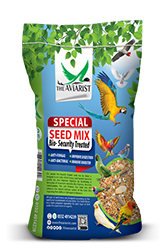
Special Seed Mix
Unlike ordinary seed mixes, our formula goes beyond just filling the seed cup. Every batch is carefully treated and enhanced to support the overall well-being, breeding performance, and immunity of your Green Cheek Conure.
The Special Seed Mix is our core variant, trusted by many breeders. What makes it unique is that, it is regularly adjusted and upgraded according to seasonal changes and breeding requirements.
Tailored nutrition for breeder pairs
Adjusted fat and protein ratios for better breeding outcomes
Ensures strong fertility, better hatch rates, and healthier chicks
This mix is especially beneficial during pre-breeding and general breeding periods.


Key Ingredients:
| Ingredient | اجزاء |
| PROSO MILLET | سفید چینا |
| RED PROSO MILLET | لال چینا |
| CANARI SEED | کنیری |
| PEARL MILLET | باجرہ |
| HEMP SEED | بھنگ کے بیج |
| SUNFLOWER SEED | سورج مکھی |
| SAFFLOWER SEED | قرتم |
| OAT SEED | (جوی (جئی |
| BARLEY SEED | جوء |
| WHITE SORGHUM | جوارسفید |
| STRIPED SUNFLOWER SEED | ایرانی سورج مکھی |
| PEANUT KERNAL | مونگ پھلی دانہ |
| ROASTED CHICKPEAS | بھنے ہوئے چنے |
Price Rs.280/Kg
Available in 10Kg & 25Kg Packing
Key Features
1. Bio-Security Treated Seeds
Every seed in our mix undergoes a strict bio-security process. This includes anti-fungal treatment that prevents the growth of harmful fungi such as Aspergillus, which can cause serious respiratory infections in birds. Additionally, the mix is treated to eliminate bad bacteria that often grow in untreated seeds and may lead to digestive or immune-related health problems.
2. Enhanced Digestion
Birds have a delicate digestive system that can sometimes struggle with raw seeds when kept in controled environment. To address this, our seed mix is enriched with special enzymes that aid in the breakdown and absorption of nutrients. These enzymes improve gut health, reduce digestive stress, and maximize nutrient utilization, ensuring that birds get the most from every seed they consume.
3. Immunity-Boosting Formula
A strong immune system is essential for protecting birds against common infections. Our blend is fortified with immunity-enhancing agents that help strengthen their natural defenses. This means your birds are better equipped to fight off seasonal illnesses, bacterial challenges, and environmental stressors.
4. Species-Specific Nutrition
Unlike generic bird seed blends, The Aviarist seed mix is specially crafted for species specific, keeping their natural habitat and dietary patterns in mind. The selected seeds provide the right balance of proteins, healthy fats, vitamins, and minerals that match their natural dietary needs.
Benefits
Healthier Plumage & Brighter Colors
Proper nutrition enhances feather quality, resulting in shinier, stronger, and more vibrant plumage—a sign of a healthy bird.
Boosted Energy & Vitality
With a balanced nutritional profile, birds remain more active, playful, and energetic, reflecting their natural behavior.
Stronger Immunity Against Diseases
The immunity boosting shield protect birds from bacterial and viral threats.
Improved Digestion & Nutrient Absorption
The added enzymes prevent bloating, indigestion, and seed waste, ensuring maximum nutritional benefit.
Longevity & Quality of Life
A safe and nutrient-rich diet contributes to a longer, healthier, and happier life for birds.
Breeding Benefits
Bird breeding requires an optimal diet rich in energy, proteins, and essential micronutrients. The Aviarist Seed Mix is designed to support the breeding cycle in several ways:
Enhanced Fertility in Pairs
Nutrient-rich seeds, combined with immune-boosting agents, improve fertility rates and increase the chances of successful breeding.
Stronger Egg Production
The bio-secure and enzyme-treated formula ensures the hen’s body efficiently absorbs calcium and proteins, leading to stronger, healthier eggs with better hatchability.
Healthy Chick Growth
Parents fed on this seed mix pass on enhanced nutrition to their chicks, ensuring stronger immunity, better feather growth, and healthy development from the very first days.
Reduced Breeding Stress
With improved digestion and higher energy reserves, breeding pairs remain less stressed during mating and chick-rearing, resulting in more consistent breeding success.
Green Cheek Conure
The Playful and Affectionate Mini Parrot
The Green Cheek Conure (Pyrrhura molinae) is a small, colorful parrot, it is admired for its playful energy and affectionate personality. Its plumage is predominantly green, highlighted with a greyish head, scalloped chest, blue flight feathers, and a maroon-red tail, along with a distinct maroon patch on the belly.
Due to their beauty, lively character, and wide range of color mutations such as cinnamon, pineapple, turquoise, and yellow-sided, the Green Cheek Conure is highly popular both as a pet and in aviculture worldwide.
Appearance
The Green Cheek Conure is a small yet striking parrot species known for its colorful plumage and compact build. Measuring about 10 inches (25 cm) in length and weighing 60–80 grams, it has a slender body with a relatively short tail compared to other conures. Its overall plumage is predominantly green, complemented by a greyish head, white eye rings, scalloped grey chest, and a maroon patch on the belly. The wings display beautiful blue highlights on the flight feathers, while the long tail feathers are mostly maroon-red, adding to its appeal.
Selective breeding has produced several attractive color mutations such as cinnamon, pineapple, turquoise, yellow-sided, and suncheek, each enhancing the bird’s visual charm. The Green Cheek Conure’s vibrant colors, combined with its playful expressions and bright eyes, make it a visually delightful parrot, admired both in aviaries and as a companion bird.
Personality and Temperament
Green Cheek Conures are intelligent, curious, and full of energy. They love to climb, explore, and play with toys, often showing their clownish side through funny antics. Social and affectionate, they form strong bonds with their owners and enjoy spending time perched on shoulders or cuddling in hands.
Though smaller than many parrots, they have big personalities. They are highly trainable, capable of learning tricks, and some can even mimic simple words and sounds. Their gentle and playful nature makes them ideal pets for families or individuals seeking an interactive companion.
Mutations of Green Cheek Conures
Selective breeding has introduced several beautiful color mutations of Green Cheek Conures, expanding their appeal among bird lovers. Some popular mutations include:
- Normal (Wild Type): Classic green plumage with maroon tail and grey chest scalloping.
- Pineapple: A striking blend of yellow, red, and green tones with bright chest coloring.
- Cinnamon: Features a softer, lighter green body and reddish tail.
- Turquoise: Blue-green plumage replacing the normal green, with a cooler overall tone.
- Yellow-Sided: Bright yellow and red chest with vibrant highlights, creating a colorful appearance.
- Suncheek & Mint: Rare mutations that display pastel shades and lighter tones, highly prized among breeders.
Each mutation retains the same affectionate personality and playful spirit, differing only in their plumage and visual appeal.
Care and Diet
Like all parrots, Green Cheek Conures require a balanced and varied diet to maintain good health. A high-quality seed mix or pellets should be supplemented with fresh fruits, vegetables, and leafy greens. Providing cuttlebone or mineral blocks ensures they receive essential calcium for strong bones and beak health.
Enrichment is equally important. Green Cheek Conures thrive on mental and physical stimulation, so offering chew toys, swings, and climbing opportunities helps prevent boredom and encourages natural behaviors. Regular out-of-cage exercise and daily interaction are vital for their wellbeing. With proper care, these birds can live 20-25 years.
Why Choose a Green Cheek Conure?
Green Cheek Conures are ideal for bird lovers seeking a small, affectionate parrot with big character. Their quiet nature, playful behavior, and wide range of mutations make them a delightful choice for both new and experienced bird owners. With their loyalty and charm, these little parrots bring joy, companionship, and endless entertainment to any home or aviary.
Green Cheek Conures (Pyrrhura molinae) are small-to-medium parrots with playful personalities but slightly lower energy requirements compared to Sun Conures. Their diet should still be nutritionally dense, with moderate protein and fat to support feather health, immunity, and breeding vitality.
Nutritional Requirements
Green Cheek Conures have specific nutritional needs that differ slightly from smaller parrots like budgies and lovebirds, mainly because of their medium size, longer lifespan, and breeding capacity. Below is a detailed breakdown of the nutritional values required for maintaining their good health:
Macronutrients
Protein
- Maintenance (pet/companion): 12-14% of diet.
- Breeding pairs & chick-rearing: 16-18%.
- Molting season: 14-16% to support feather regrowth.
Fat
- General health: 5-8% of diet.
- Breeding & high activity: Up to 10% (short-term).
- Indoor/pet Green Cheeks: Keep closer to 5-6% to prevent obesity.
Carbohydrates & Fiber
- 50–55% of diet. Supplies steady energy and aids digestion.
Vitamins
- Vitamin A: Essential for immunity, skin, feather brightness, and reproductive health (carrots, spinach, sweet potatoes).
- Vitamin D3: Crucial for calcium absorption and strong bones/eggshells (natural sunlight or supplements).
- Vitamin E: Supports fertility and breeding performance.
- Vitamin K: Important for blood clotting and skeletal health.
- Vitamin B-complex: Improves metabolism, nerve function, and feather quality.
Minerals
- Calcium: 0.8-1.2% of diet (higher in breeding females).
- Phosphorus: Balanced with calcium for skeletal and eggshell health.
- Trace minerals (Zinc, Magnesium, Selenium, Iodine, Iron): Required in small amounts for immunity, metabolism, and reproductive success.
- Cuttlebone/mineral blocks: Should always be available.
Breeding Season Requirement
- Protein: Increase to 16-18% for better fertility and chick growth.
- Fat: Allow 7-10% for energy-demanding periods.
- Calcium + Vitamin D3: Very important to prevent soft eggshells.
- Fresh soft foods: Sprouted seeds, soaked grains, vegetables, and egg food should be provided daily.
Water
Fresh, clean water must always be available. Even mild dehydration causes stress, poor digestion, and reduced breeding performance.
Breeding Care
Breeding Green Cheek Conures requires proper preparation, nutrition, and attentive management to ensure healthy offspring. Only mature, bonded pairs (1–2 years old) should be selected, as young or unrelated birds may not breed successfully. A spacious cage or aviary is important to allow natural bonding and courtship, along with a secure nesting box (about 10” x 10” x 12”) lined with clean wood shavings to provide comfort and safety for eggs and chicks.
During the breeding season, nutrition plays a vital role. A diet rich in proteins, calcium, and fresh vegetables supports fertility, egg formation, and chick development. Supplementing with sprouts, legumes, and cuttlebone helps maintain the health of both parents. The female typically lays 4–6 eggs per clutch, with incubation lasting 22–25 days, mostly carried out by the female while the male provides food and protection.
After hatching, both parents feed the chicks with regurgitated food, but it is essential to provide soft, protein-rich foods like sprouts, boiled eggs, and soaked seeds to support chick growth. Regular monitoring is necessary to ensure the chicks are being fed adequately; hand-feeding may be required if parents neglect them. A clean, stress-free environment is crucial to reduce the risk of infections and stress-related breeding failures.
With attentive care, Green Cheek Conures can successfully raise multiple clutches per year, making them both rewarding for hobbyists and commercially valuable for breeders.
1. Pre-Breeding Preparation
- Choose healthy, bonded pairsat least 1–2 years old.
- Conduct health checks to rule out infections or parasites.
- Provide a spacious cage or aviary(minimum 24” x 24” x 24”) to encourage natural courtship.
- Begin a nutrient-rich conditioning dietbefore breeding, including pellets, seeds, fresh vegetables, leafy greens, sprouts, and calcium supplements (cuttlebone/mineral block).
2. Nesting Setup
- Offer a nesting boxmeasuring around 10” x 10” x 12” with a concave base.
- Line the box with clean wood shavings or untreated sawdust.
- Place the nest in a quiet and stress-free location to encourage breeding.
- Ensure the environment has proper ventilation, natural light cycles, and stable temperatures.
3. Egg Laying and Incubation
- The female usually lays 4–6 eggs per clutch.
- Incubation lasts 22–25 days, with the female primarily incubating while the male provides food.
- Provide extra calcium-rich foods (dark greens, broccoli, cuttlebone) and protein sources like sprouts or boiled egg to support egg production and chick development.
- Avoid unnecessary disturbances during incubation to reduce stress.
4. Chick Rearing
- After hatching, both parents feed chicks with regurgitated food.
- Supplement parents’ diet with soft, high-protein foods (soaked seeds, sprouts, mashed vegetables, boiled egg, legumes).
- Monitor chicks daily to ensure proper feeding and growth.
- If parents neglect or underfeed chicks, be ready to hand-feed using specialized formulas.
- Keep the nesting box clean and dry to prevent bacterial infections.
5. Post-Breeding Care
- Chicks are usually weaned by 8–10 weeks and can be transferred to a separate cage.
- Allow breeding pairs a rest period between clutches to avoid exhaustion.
- Continue providing a balanced diet and enrichment activities to maintain adult health.
Socialize chicks early to improve their temperament and make them more desirable as pets.
With attentive care, Green Cheek Conures can reliably produce healthy offspring, and their color mutations - add commercial appeal, making breeding both rewarding and profitable.
Commercial Breeding of Green Cheek Conure
Breeding Green Cheek Conures carries strong commercial potential due to their rising popularity as companion birds. They are highly sought after for their manageable size, quiet nature compared to larger conures, and affectionate temperament, making them appealing to families and first-time bird owners. Their relatively low noise level, combined with playful behavior, has significantly increased their demand in the global pet trade.
From a breeder’s perspective, Green Cheek Conures are productive and consistent breeders when provided with proper care. A healthy pair can produce multiple clutches annually, with an average of 4–6 eggs per clutch, ensuring a steady supply for the market. Additionally, their color mutations—such as pineapple, cinnamon, turquoise, yellow-sided, and suncheek—enhance their commercial value, with rare mutations fetching higher prices among hobbyists and collectors.
With their long lifespan (up to 20–25 years) and strong adaptability to captive conditions, Green Cheek Conures hold long-term appeal for bird lovers. Breeders who maintain high standards of nutrition, biosecurity, and socialization can establish sustainable businesses while meeting the increasing demand for these charming parrots.
Why The Aviarist Seed Mix?
To maintain good health, Green Cheek Conures need 12-14% protein (up to 18% during breeding), 5-8% fat (up to 10% in breeding), and a diet rich in vitamins, minerals, and clean water. With their playful and affectionate nature, they thrive on a safe, balanced diet like The Aviarist - seed mix, ensuring vitality, fertility, and stunning plumage all year round.
